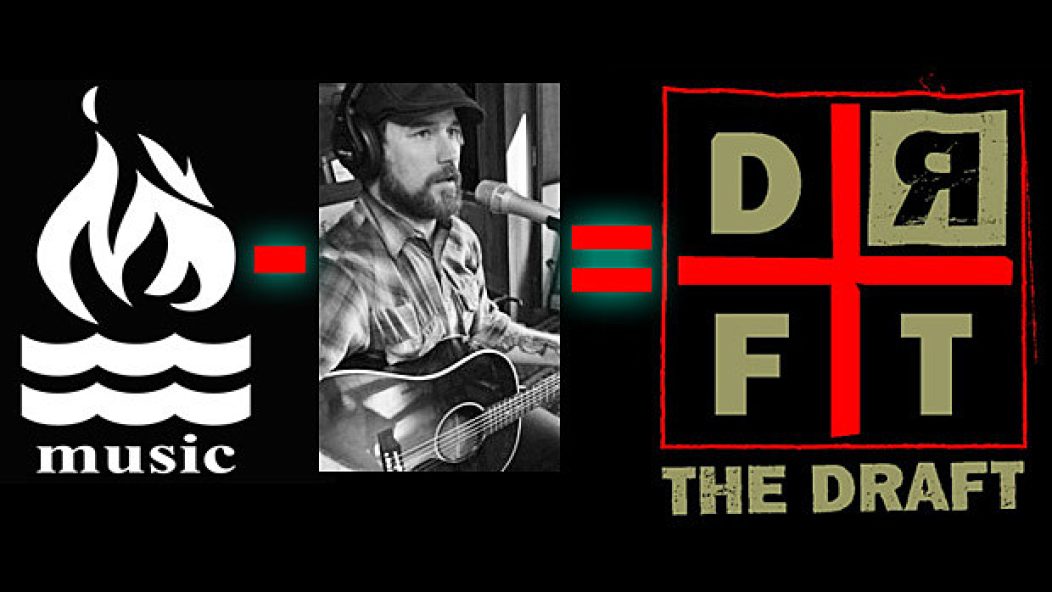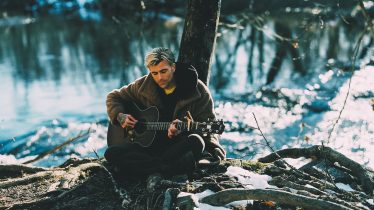
14 bands who changed one member and started fresh
It’s rare nowadays that any band with a few releases (and a few hundred shows) under their belt hasn’t had a lineup change or two (or six, if you’re a metalcore band on Rise Records). But the following 14 bands didn’t just replace one member and soldier on; they started fresh as a brand new band, without relying on the back catalog of their former project. Some of these bands went on to be even more popular than their former selves. Others fizzled out after a record or two, resulting in the original band reuniting. Some still exist in tandem with their alter egos.
ALL
When frontman Milo Aukerman, uh, went to college, the remaining members of SoCal pop-punk legends Descendents decided to keep playing together under the pseudonym ALL (spawned from the title of Descendents’ 1987 album of the same name). A revolving door of vocalists followed (we’re most partial to the Chad Price era), but the rest of the band—guitarist Stephen Egerton, bassist Karl Alvarez and drummer Bill Stevenson—have done their best to keep both groups separate (and semi-active).
AUDIOSLAVE
Rage Against The Machine mouthpiece Zach De La Rocha bailed on his bandmates in 2000, citing a massive communication breakdown among members. Unfazed, guitarist Tom Morello, bassist Tim Commerford and drummer Brad Wilk rebooted Rage as Audioslave, turning the mic over to Soundgarden frontman Chris Cornell. It was a match made in radio-rock heaven, resulting in 10 Billboard Mainstream Rock Chart Top 10 hits and more than five million units shifted in the U.S. alone.
BEADY EYE
Fewer things are more entertaining than watching sibling rivalries play out on a grand stage, and the Gallagher brothers delivered in spades over the course of Oasis’ 18-year career. But guitarist Noel finally had enough in 2009, quitting the band to fly solo with his High Flying Birds project. His brother Liam and the rest of Oasis didn’t even flinch, forming a new group called Beady Eye, letting bassist Andy Bell shift to guitar and recruiting Kasabian guitarist Jay Mehler on bass. Of course, Noel might have the last laugh after all; his self-titled solo debut opened at No. 1 on the U.K. charts and is certified double platinum in his homeland, whereas Beady Eye’s first album, Different Gear, Still Speeding, debuted at No. 3 and has only gone gold.
THE DRAFT
Beardcore progenitors Hot Water Music were Black Flag for a new generation, in terms of how hard they toured—they practically lived on the road for more than a decade straight. That lifestyle is bound to burn someone out, and vocalist/guitarist Chuck Ragan was the first to break, leaving the band in late 2005. Not really knowing what else to do, vocalist/guitarist Chris Wollard, bassist Jason Black and drummer George Rebelo regrouped and formed the Draft, initially recruiting Bad Religion guitarist Brian Baker as their fourth member before trading him in for Todd Rockhill. One LP and a handful of 7-inches followed, but not much else—fans didn’t embrace the Draft as they had HWM, so a few short years later, Ragan joined back up with the boys for a Hot Water Music reunion that has resulted in the biggest shows of their career and a pretty kickass record in 2012’s Exister. The Draft recently came out of hibernation for a brief summer tour this year (with Addison Burns on guitar), but have no plans on recording any more music for the time being.
EMBRACE
By 1985, two of Washington, D.C.’s most promising hardcore bands—Minor Threat and the Faith—had already been broken up for a few years. But what better way to kick off the first wave of post-hardcore than with the singer of one band forming a new group with everybody else from the other band? That’s what happened here; Minor Threat frontman Ian MacKaye formed Embrace with all the ex-members of the Faith minus their singer, Alec MacKaye—who was also Ian’s younger brother. (That might’ve been a little awkward, no?) Embrace lasted for less than a year, but their self-titled debut is one of the best records to have come out of that fertile musical ground in D.C.
FIREHOSE
fIREHOSE were born out of tragedy: Bassist Mike Watt and drummer George Hurley were originally playing in California weirdo-punk trio the Minutemen with guitar virtuoso D. Boon, whose life was unfortunately cut far too short in late 1985 when he died in a van accident. After mourning his loss, Watt and Hurley regrouped as fIREHOSE with Ohio native Ed Crawford on vocals and guitar. The band lasted until 1994, playing nearly 1,000 gigs along the way. They recently reunited for Coachella in 2012.
FURTHER SEEMS FOREVER
While Further Seems Forever have had their fair share of lineup changes, they actually came in to existence after the Florida-based Christian hardcore band Strongarm called it quits in 1998. The four instrumentalists in Strongarm jettisoned singer Chris Carbonell (already Strongarm’s second singer) and regrouped with a new Chris at the helm—Chris Carrabba, later of Dashboard Confessional. The lineup of Strongarm + Carrabba only lasted for one album, the 2001 classic The Moon Is Down, before FSF’s lineup began a constant shifting that didn’t settle down until they broke up in 2006. FSF have since reunited with their entire original lineup (Carrabba included), releasing a new album called Penny Black last year. >>>
HEY MERCEDES
Braid were one of the finest emo bands of the second wave, but unfortunately they called it quits right as the genre was reaching commercial viability. Curiously though, less than a year after Braid’s final shows, a new band called Hey Mercedes—featuring everyone from Braid minus guitarist/vocalist Chris Broach, plus guitarist Mark Dawursk—popped up with a four-song EP and full touring schedule in hand. (It didn’t take much work to guess who caused the most friction in Braid in the ’90s.) Hey Mercedes put out two full-lengths on Vagrant and toured America about 94,000 times over, before ending their band in 2005 (after having already buried the hatchet with Broach for a massive Braid reunion tour in 2004). More recently, Braid re-reunited and are working on a new full-length. Hey Mercedes have been resurrected for a handful of performances since their dissolution but appear to be dead and buried for the time being.
KILIMANJARO
We were huge fans of As Tall As Lions (heck, we hand-picked ’em to be on our first-ever AP Tour way back in 2007), so when ATAL ended in 2010, we were pretty sad pandas. Luckily, the band members did their best to console us with Kilimanjaro, which was everyone from ATAL’s final lineup minus vocalist/guitarist Dan Nigro—plus a guy on trumpet named Duncan Tootill. See, Kilimanjaro were an instrumental, semi-improvisational jazz quartet—and while we could hear a little bit of that in ATAL’s gorgeous, lush alt-rock, we definitely weren’t expecting something this off the beaten path. Kilimanjaro have since gone on hiatus.
 LOVELIGHT SHINE
LOVELIGHT SHINE
Best known for their split 7-inch with Jimmy Eat World, San Diego emo-shoegazers Jejune were, in two words, fucking awesome. Unfortunately, the band weren’t long for this world, breaking up in 2000 after one awesome EP, Junk and one incredible album, This Afternoon’s Malady. An odds-and-ends collection called R.I.P. soon followed, featuring a handful of new tracks, which were glammier and poppier than their previous material. It shouldn’t have been a surprise, then, when three-fourths of the band—vocalist/guitarist Joe Guevara, guitarist Mark Murino and drummer Chris Vanacore—formed a new band called Lovelight Shine, recruiting bassist Gary Striegel to fill the spot of Jejune vocalist/bassist Arabella Harrison. The band released a smokin’ hot five-song debut EP called Makes Out, that was all ’70s-glam-rock swagger and awesome power ballads, but it didn’t connect with the scene at all, and LLS faded into obscurity pretty quickly. Neither Jejune nor LLS have been active for more than a decade.
NEW ORDER
With the tragic suicide of Joy Division frontman Ian Curtis in 1980, his bandmates were faced with a tough decision: Do they end their musical careers just as they were getting started, or do they soldier on? They chose the latter, rechristened themselves as New Order and recruited drummer Stephen Morris’ girlfriend Gillian Gilbert to play synth and fill out the lineup. The band are still active now, though their lineup has had a few hiccups, mainly with the departure of bassist Peter Hook.
STARPOOL
Following the abject commercial failure of Save Ferris’ second album, Modified, the Orange County ska-punk band crumbled, only to have all their members minus flame-haired singer Monique Powell reconstitute themselves as Starpool. The band play a similar style of ska-punk as their previous group, only with Alan Meade on vocals. Starpool are still semi-active in Southern California—and they’re currently pretty pissed at Powell for reuniting Save Ferris earlier this year with a bunch of jabronis. Both sides are in the process of suing one another for control of the Save Ferris name. (Bet that’s worth millions.)
TALK SHOW
Scott Weiland is known for being a bit, uh, difficult to work with sometimes. Just ask his Stone Temple Pilots bandmates, who got so fed up with his personal issues and frequent trips to rehab, they started an entirely new band called Talk Show with vocalist Dave Coutts. Their self-titled debut came out on Atlantic Records in 1997, and more or less sounds just like an STP record, although the public didn’t respond the same way they had to STP’s previous albums—Talk Show peaked at 131 on the Billboard 200. By 1998, the other members of STP were already back in the studio with Weiland, working on No. 4. The decision was the right one, at least financially; No. 4 debuted at 6 on the Billboard 200 and went platinum in under a year.
VISTA CHINO
Just about everyone knows who Josh Homme is—between Queens Of The Stone Age, Them Crooked Vultures and Eagles Of Death Metal, dude’s bound to have at least a few jams on your iPod. But what about his former bandmates in Kyuss, the stoner-rock band he was a member of from 1987 to 1995? Well, those guys have gotten back together under the moniker Vista Chino with guitarist Bruno Fevery filling Homme’s very large shoes. The group originally went by the name Kyuss Lives! until Homme filed a lawsuit in federal court in 2012 claiming trademark infringement on the Kyuss name—a suit he partially won later that year, resulting in the name change to Vista Chino.








